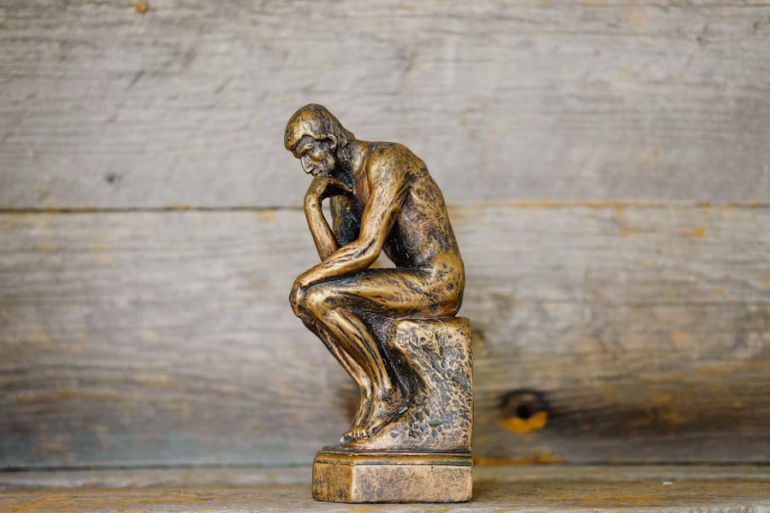Waking up at 9 a.m. has never been on my list of favorite things to do, especially when it was for a class like Intro to Philosophy. But these Gen Eds had to be done like my Saturday chores. So, there I found myself on the first day of my sophomore fall semester, grumbling over an early morning and making sure to grab a corner seat so I could stare off into space. I prayed that I wouldn’t have to read a lot of boring old people yap about their existential crises. I didn’t understand why we had to take this class and I was frustrated since I felt like I would just be the dummy in the back that had no idea what was going on. I mean, only a smarty pants could actually understand philosophy and I was never that student. In my mind, I was already a failure, so why should I be reminded every other day of the week?
Fast forward to the next semester and alas, I stared down a wretched 8 a.m. class, but I actually looked forward to the class I was going to. In fact, that semester I did not have a class I felt reluctant to follow through on. As most have known me for being a media-com student, during my first few semesters my experience with majors is very… shifty. And that semester I had entered my philosophy era. That’s right, the subject I had no interest to partake in became my obsession. I found myself excited to talk in class and read the assignments and do research outside of class. I couldn’t stop investigating all these ideas and old people who yapped about their existential crises. And I realized that philosophy is not something reserved for certain people, in fact, we are all philosophers. Even if you don’t like reading Kant or Aristotle, or whatever philosophical icon some people swear you have to know to be considered part of the “philosophical dialectical sphere.”
I was once talking with a guy I had just met. We were at the level where we were just getting to know one another and he asked what sort of things I was interested in. I told him that I loved philosophy, to which he replied that he was not smart enough to understand the subject and wasn’t sure if he could keep up in conversation. Every time I hear this from someone, which is actually quite often, I cannot help but be reminded of my own initial reluctance toward the subject. But now, as a person who has studied a fair amount of philosophers, I can say that there is one thing most of them have in common: they are not the best writers. They make things very complicated. Sometimes, if the subject is worthy enough for such complex literature, then it’s justified; however, a good amount of the time they kind of babble on or conjure up complex sentences with sumptuous words that are unneeded. This can make it difficult to keep up with what exactly is happening, therefore, the main point can become diluted.
Other factors to note are when and where the philosopher lived. Our culture and daily jargon is far different than, say, that of Pythagoras or Simone de Beauvoir. Also, as mentioned before, sometimes the subject does call for more complex verbiage. Some topics can only be explained with abstract sentences that make you question what exactly you read – it begs you to read it over and over until you have no other choice but to study it. So, if you’re trying to read a philosophical text and it isn’t clicking, just be patient. Maybe try watching a YouTube video that helps explain things or talk with someone else who read the text too. The best part of philosophy is the discussion. And always remember, just because you do not initially understand something does not mean you’re failing.
Let me ask you something, do you have any opinions? Ideas? Do you sometimes think about life? Have you ever been curious about something? Have you ever asked a “but why” question? If you said “yes” to even just one of those questions, you’re a philosopher. You might be thinking that this makes no sense. To that, I must remind you what philosophy is: the search for truth, wisdom and virtue. At the root of whatever we believe, desire, question, etc. it is all tied to our own moral reflections. Yeah, it really is that straightforward.
Photo courtesy of Unsplash.




